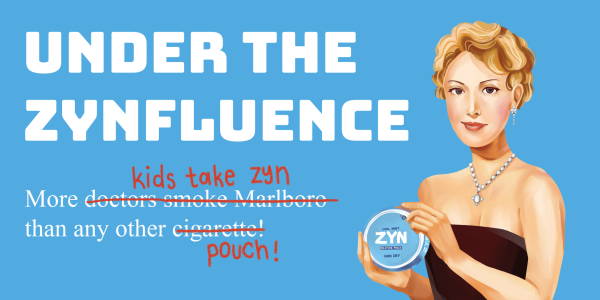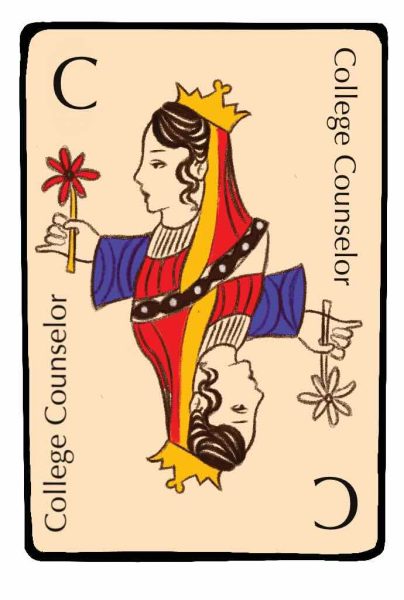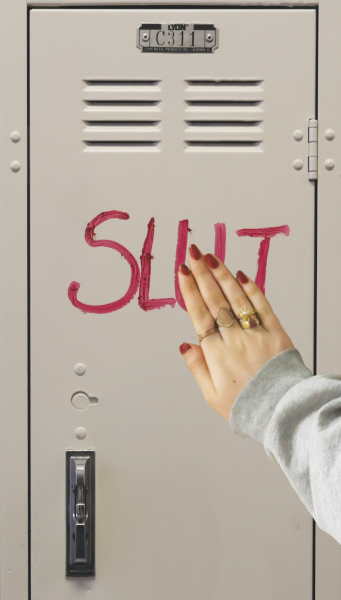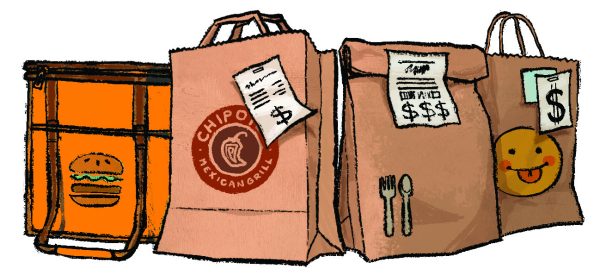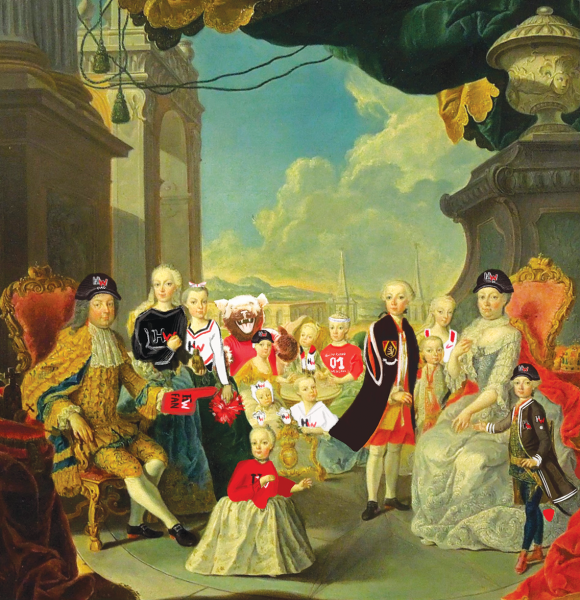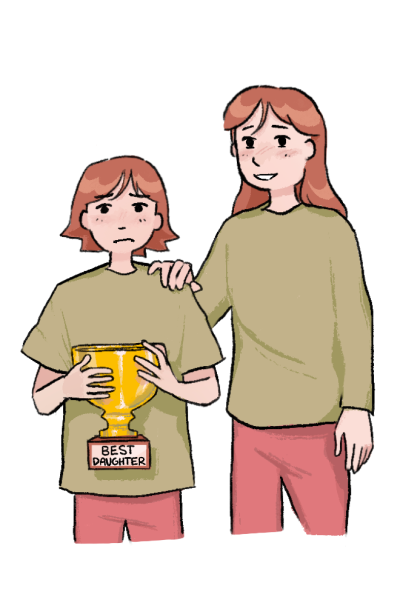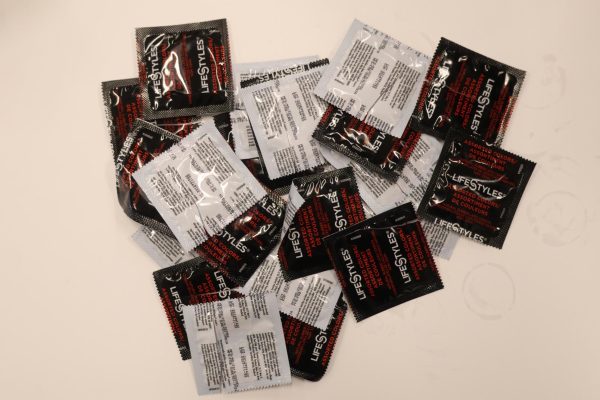Survival of the Fittest: The Dangers and Benefits of Academic Competition
Faculty and students speak on competition over college applications amid the recent unprecedented admissions season.
A tiger representing a top competitor in the metaphorical jungle of high school growls while holding an A+ paper.
June 1, 2021
Casey Weisman ’22 felt the blue fluorescent glow of his laptop screen on his face as he logged onto his fifth virtual college panel in mid-April. He immediately began worrying about the upcoming college admissions season as he saw dozens of his peers on the Zoom call with him.
“During the pandemic, I feel like it’s been even harder for people to get into colleges,” Weisman said. “And, as Harvard-Westlake students always do, they compete with their peers to outdo one another. Since my sophomore year, I’ve become a lot more aware and nervous of the admissions process and have felt pressured to do better than my peers. We already go to one of the top schools in the country, and because of that, we feel the need to prove ourselves by competing with each other for the ‘ultimate’ applications.”
A report published in The Washington Post in April of 2021 revealed that college applications at Ivy League universities increased by an average of 33.4% during the COVID-19 pandemic, while actual acceptance rates dropped by an average of 1.98% among all of the Ivies.
Upper School Dean Nia Kilgore said that this drop in acceptances has driven students to feel even more competitive in the college application period, which is where the deans have noticed the most pressure to perform exceptionally. The deans hope to help students shift their perspectives from those of worry to those of optimism, Kilgore said.
“College admissions are only getting pickier over time,” Kilgore said. “The pandemic has created an influx of applications with less acceptances than ever, which [alarms students]. As deans, we have to help students believe in themselves and not feel defined by the colleges they get accepted to. When kids feel good about their abilities, they are less inclined to view competition as a bad thing. Adjusting their mindset can lead to more productive and happier students.”
Science Teacher and Diversity, Equity and Inclusion Coordinator Nate Cardin said he has observed that overworked students are a byproduct of academic competition and that the desire create an impressive college application is a burden on students.
“The environment of overloaded, exhausted students often makes school days feel less joyful,” Cardin said. “Students aren’t able to dig deep into the ideas we’re discussing in Zoom classes. Instead, it feels like many of them are scrambling to keep up, sacrificing sleep, hobbies and friendships to do so. Each student feels pressure to perform because of the looming certainty of college applications, [creating] a harsh space formed by students [who overload on extracurriculars].”
Naomi Attal ’21 said now that she has gone through the college application process and has been accepted to New York University, she thinks the competitive atmosphere she was in was unnecessary.
“I’m really happy with the college I’m going to, but I think I still would have done well and been less stressed if I hadn’t faced competition with my peers during admissions season,” Attal said. “I love my classmates, but it’s a shame that we treat our last year as high schoolers seeing each other as targets or people who could steal our spots at our dream schools. There’s pressure to one-up each other in terms of how many extracurriculars you have, which have been even harder to do virtually, and people overwork themselves until it takes a toll on their mental health.”
Upper School Dean Jen Cardillo said the greatest disadvantage which her senior students faced during the pandemic was not being able to travel to the colleges they were interested in visiting.
“Very few of my seniors had significant opportunities to visit colleges,” Cardillo said. “Those who did get to tour the colleges where they are now enrolled might have visited pre-pandemic, when they were significantly younger, or did unofficial tours more recently. It was definitely a disadvantage not to have those opportunities to see a college campus in person, but I am really impressed with my seniors for their sense of adventure and dedication, as many of them plan to move this summer to campuses they will be seeing for the first time.”
Will Ruden-Sella ’21 said he felt disadvantaged by his inability to tour colleges during this admissions cycle because of COVID-19 safety concerns.
“I had planned to go on college tours during spring break last year,” Ruden-Sella said. “I feel like if I would have gone on a college tour and saw the campuses of a bunch of schools, I would have gotten a sense of where I wanted to apply to more, which I didn’t really get. Overall, [COVID-19] made it really hard to get to know each college and what is unique about each college.”
Kilgore said that students have approached their deans feeling discouraged especially during this year’s admissions process.
“Now more than ever, students have expressed that they feel ‘lesser’ than their seemingly smarter peers,” Kilgore said. “Going through a year of virtual school prevented them from seeing their peers, and it seems that the lack of face-to-face connections has added to their stress about college. I engage in conversations about what situations lead to [stress]—is it breakout room discussions when you don’t know answers or the perception of who gets into certain colleges and who doesn’t factors that makes you feel unworthy? I think all deans are having these conversations with some of their students, and the problem isn’t solved after one talk.”
A New York Times study conducted by Michael Hurwitz in 2011 found that one unnamed college was 15 times more likely to accept legacy students than students without family alumni.
Hope Shinderman ’21 has also witnessed the advantages people have in the college process, which increase pressure on those who lack such benefits.
“I’ve also noticed that wealthier students whose parents know more people in the college world or attended well-known universities tend to be favored by admissions officers and feel like they shouldn’t tell others about factors that may help them,” Shinderman said. “These often discourage those who lack connections and can’t make them during a global pandemic, so I feel like the entire situation can be quite unfair.”
The struggle to maintain “perfect” grades follows his peers throughout their daily lives at school, and only the top few performers come out of the competition emotionally unscathed, Weisman said.
“I feel like the competition doesn’t benefit many people except for those who manage to excel with the help of online tutors or family connections,” Weisman said. “Otherwise, everyone is fighting for themselves in this ongoing battle against one another that I think is dangerous to us, especially during this unpredictable past year. Everyone has a ‘survival of the fittest’ mentality and that they have no choice but to try to come out on top.”






































